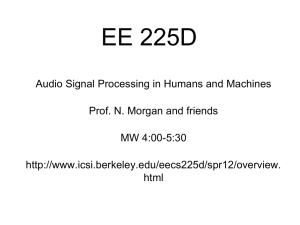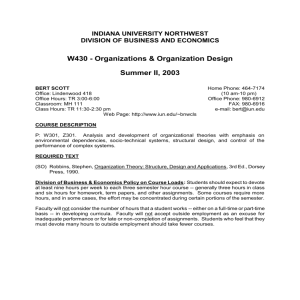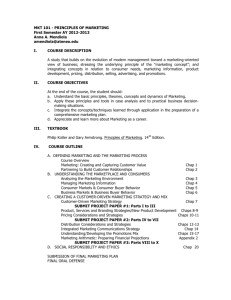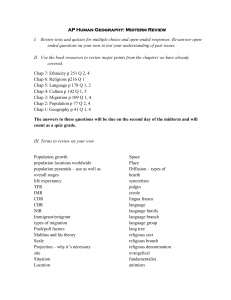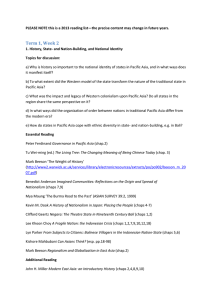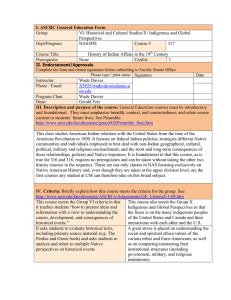PHYSICS 7200 WINTER 2007 - Wayne State University Physics and
advertisement
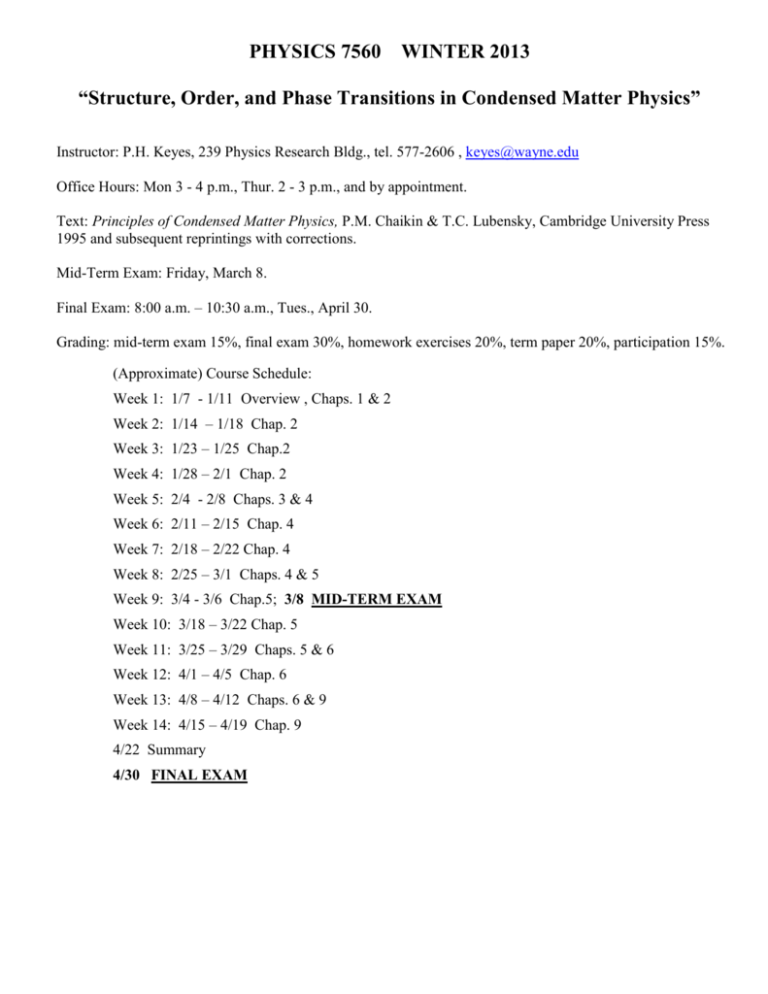
PHYSICS 7560 WINTER 2013 “Structure, Order, and Phase Transitions in Condensed Matter Physics” Instructor: P.H. Keyes, 239 Physics Research Bldg., tel. 577-2606 , keyes@wayne.edu Office Hours: Mon 3 - 4 p.m., Thur. 2 - 3 p.m., and by appointment. Text: Principles of Condensed Matter Physics, P.M. Chaikin & T.C. Lubensky, Cambridge University Press 1995 and subsequent reprintings with corrections. Mid-Term Exam: Friday, March 8. Final Exam: 8:00 a.m. – 10:30 a.m., Tues., April 30. Grading: mid-term exam 15%, final exam 30%, homework exercises 20%, term paper 20%, participation 15%. (Approximate) Course Schedule: Week 1: 1/7 - 1/11 Overview , Chaps. 1 & 2 Week 2: 1/14 – 1/18 Chap. 2 Week 3: 1/23 – 1/25 Chap.2 Week 4: 1/28 – 2/1 Chap. 2 Week 5: 2/4 - 2/8 Chaps. 3 & 4 Week 6: 2/11 – 2/15 Chap. 4 Week 7: 2/18 – 2/22 Chap. 4 Week 8: 2/25 – 3/1 Chaps. 4 & 5 Week 9: 3/4 - 3/6 Chap.5; 3/8 MID-TERM EXAM Week 10: 3/18 – 3/22 Chap. 5 Week 11: 3/25 – 3/29 Chaps. 5 & 6 Week 12: 4/1 – 4/5 Chap. 6 Week 13: 4/8 – 4/12 Chaps. 6 & 9 Week 14: 4/15 – 4/19 Chap. 9 4/22 Summary 4/30 FINAL EXAM Structure, Order, and Phase Transitions in Condensed Matter Physics Structure and Order: Overview: gas, liquid, and solid; short-range and long-range order; symmetry; defects; fluctuations Crystal Structure: structures for the elements, compounds, molecular crystals, perovskites Disorder: liquids, amorphous solids, glasses, orientational disorder in molecular crystals Order Mixed with Disorder: liquid crystals Symmetries of Crystal Structures: lattices, unit cell, basis, point groups, space groups, quasi-crystals, incommensurate structures Scattering: x-rays, neutrons, electrons, and light; diffraction; Bragg’s law; the reciprocal lattice; effects of symmetry; magnetic structures; diffraction from non-crystalline materials and from fluctuations, the phase problem Macroscopic Properties and their Relation to Symmetry: tensors of different ranks, stress, strain, dielectrical properties, piezoelectricity, elasticity Phase Transitions: Review of Thermodynamics and Statistical Mechanics: the three laws of thermodynamics, equations of state, thermodynamic potentials, derivatives, equipartition theorem, partition function, phase transition thermodynamics The Order Parameter: symmetry breaking, discrete and continuous symmetries Models: the Ising model, n-vector models, Bragg-Williams mean-field theory Landau Theory of Phase Transitions: macroscopic order parameter, correlation length Liquid-Vapor Transition: van der Waals equation, Maxwell construction via Landau theory Liquid-Solid Transition: Lindemann and Hansen-Verlet criteria, hard sphere freezing Displacive Transitions: soft modes, ferroelectrics Liquid Crystals: nematic isotropic transition, nematic-smectic A transition and the superconductor analogy Multicritical Points: Tricritical, Bicritical, Landau point, and Lifshitz point Critical Exponents and Scaling Laws The Ginsburg Criterion: fluctuation effects and the breakdown of mean-field theory The Renormalization Group Approach: Kadanoff construction, recursion relations, fixed points, n and d dependence Defects: points, lines, and walls; topological defects, topological-order and the Kosterlitz-Thouless transition, bond-orientational-order and the hexatic phase Nucleation Transitions: the Freedericksz transition, cholesteric and smectic C*unwinding Critical point dynamics, critical slowing down Pattern Selection in Condensed Matter Systems


